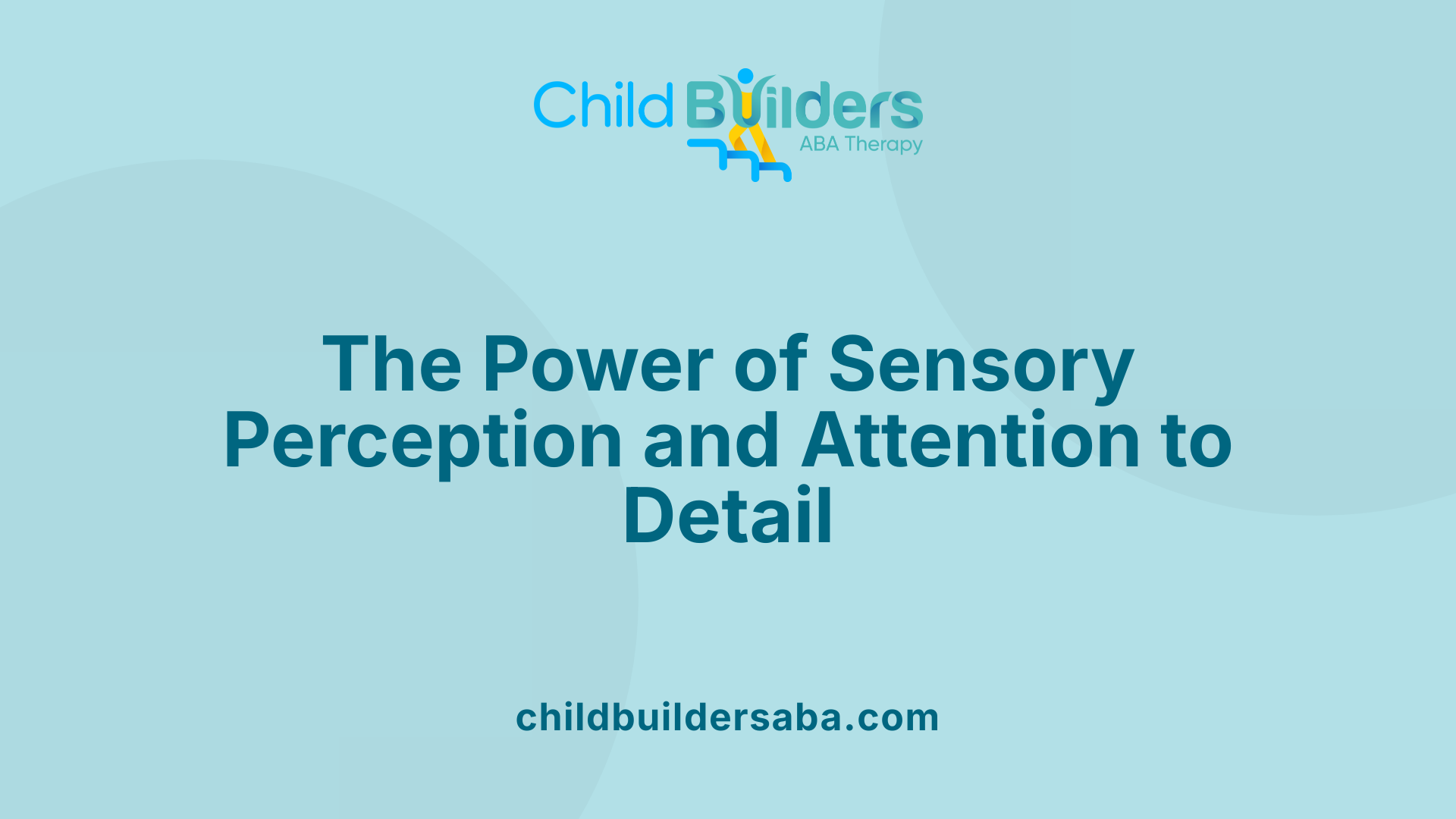Strengths and Abilities In Autism

Unveiling the Power of Neurodiversity
Autism has long been associated with challenges in social communication and sensory sensitivities. However, a growing body of research and real-world examples highlights a broad spectrum of strengths and exceptional abilities that autistic individuals possess. Emphasizing these qualities can transform perceptions and support a more inclusive society that recognizes the profound contributions of neurodiverse minds.
Core Strengths and Abilities of Autistic Individuals

What are the common strengths and abilities associated with autism?
Autistic individuals often possess a rich array of strengths and abilities that contribute remarkably to numerous fields. These include heightened sensory perceptions like superior visual acuity, advanced pattern recognition, and refined auditory discrimination. Many show exceptional talents in music, visual arts, mathematics, and systematic thinking. They frequently demonstrate deep expertise and hyperfocus on their special interests, cultivating mastery and innovative insights.
Core character traits include sincerity, dependability, and fairness, which manifest as honesty, loyalty, and a strong moral compass. Their meticulous attention to detail and systematic approach underpin their problem-solving skills, often leading to creative and logical solutions. These qualities are complemented by a strong work ethic, dedication, and an ability to think visually, combining to foster unique perspectives and contributions.
How can a strengths-based approach improve understanding of autism?
Adopting a strengths-based perspective shifts focus from deficits to capabilities, fostering greater appreciation and inclusivity. Recognizing skills like intense focus, creative talents, and advanced memory allows clinicians, educators, and society to see autistic individuals as capable and valuable.
This approach encourages tailored support, fostering confidence, self-esteem, and social participation. It also promotes individualized strategies that leverage personal interests and abilities, resulting in meaningful educational, social, and employment outcomes. Moreover, involving autistic individuals as active participants ensures their voices and strengths are authentically represented, cultivating a respectful, nuanced understanding of autism as a natural diversity.
In what ways can autistic strengths be supported and promoted in education and employment?
Supporting these strengths involves creating adaptive environments that highlight and cultivate individual talents. Educational settings benefit from visual supports, flexible routines, and curricula that integrate special interests to boost engagement.
In employment contexts, accommodations like clear instructions, sensory-friendly workspaces, and targeted mentorship are vital. Promoting awareness of qualities like honesty, dedication, and a strong sense of justice fosters inclusive cultures that value neurodiversity. Initiatives such as coding clubs, arts programs, and research projects tailored to autistic strengths can open doors to fulfilling careers.
Overall, recognizing individual differences and providing specialized supports unlock the potential of autistic individuals, allowing them to thrive and bring their unique talents into society.
What are some specific abilities or skills that autistic individuals may excel in?
Many autistic individuals stand out in domains such as pattern recognition, memory, and detailed perception. These skills often translate into high achievement in arts, sciences, and technical fields.
They may develop deep expertise through hyperfocus on areas of interest, like music or mathematics, resulting in advanced knowledge and skills. Visual thinking, sensory sensitivities, and creative problem-solving are prevalent talents. Some showcase extraordinary abilities such as exceptions in savant syndrome—demonstrating remarkable skills in memory, calculation, or artistic creation.
Qualities such as honesty, loyalty, and a justice-driven moral outlook often support leadership roles and collaborative efforts. These skills and traits collectively enable many autistic people to innovate and excel in their chosen domains.
Are there any documented superpowers or extraordinary abilities associated with autism?
Indeed, some autistic individuals exhibit extraordinary abilities, often termed superpowers. These include remarkable pattern recognition, astounding visual and auditory sensitivities, and memory feats that surpass typical expectations.
Some experience heightened sensory perceptions—such as superior visual resolution, absolute pitch, or extraordinary ability to detect subtle sounds and colors. A notable portion, particularly those with savant syndrome, demonstrate exceptional talents in music, detailed artwork, mathematical calculations, or encyclopedic knowledge.
While these abilities are exceptional and relatively rare, they exemplify the incredible cognitive diversity within autism. It’s important to appreciate that not all autistic individuals possess such powers, but many show extraordinary talents aligned with their intense interests and systemic thinking.
What role do sensory perception and attention to detail play in autistic strengths?
Sensory perception and fine attention to detail are fundamental to many autistic strengths. Their heightened sensory sensitivities can lead to exceptional pattern recognition, visual clarity, and auditory discrimination.
This perceptual acuity enables noticing details others might miss, like microscopic inconsistencies or subtle visual cues. It underpins abilities such as perfect pitch, synesthesia, and extensive knowledge in niche interests, sometimes leading to savant skills.
Moreover, their capacity for intense focus—hyperfocus—amplifies these perceptual strengths, allowing for meticulous work, advanced problem-solving, and creative pursuits. These sensory and detail-oriented abilities drive innovation, artistry, and scientific discovery.
How do autistic strengths translate into success in specific contexts like the workplace or classroom?
In educational and professional settings, these strengths manifest as high performance, innovation, and reliability. Their ability to focus deeply and process details enhances accuracy and efficiency.
In classrooms, visual learning preferences and rote memory support mastery of complex subjects. Routines, structured tasks, and integration of interests foster motivation and engagement.
In workplaces, qualities such as honesty, dedication, and systematic thinking foster trust and dependability. Their capacity for pattern recognition and detailed analysis drives quality improvements and creative problem-solving.
Supporting these strengths through tailored accommodations and recognition sustains performance and well-being. Individualized understanding and reinforcement of talents facilitate meaningful participation and success.
Why is it important to differentiate strengths from challenges when understanding autism?
This differentiation fosters a respectful, balanced view that recognizes the full spectrum of abilities and difficulties. Highlighting strengths like advanced memory, creativity, and intense focus fosters empowerment, confidence, and self-advocacy.
Understanding challenges such as sensory overload, inflexible thinking, or social difficulties enables targeted support, accommodations, and interventions. This nuanced perspective reduces stigma and societal bias, embracing autism as neurodiversity.
By emphasizing this balance, support strategies are better tailored, promoting positive self-identity and maximizing potential. It fosters societal appreciation for the diverse ways autistic minds operate and contribute.
Embracing and Celebrating Neurodiverse Strengths
Recognizing the diverse strengths and abilities of autistic individuals fosters an environment of acceptance, empowerment, and innovation. By shifting perceptions from deficits to capabilities, society can unlock the full potential of neurodiverse minds, enriching all fields of human endeavor. Supporting autistic talents in education, employment, and community life not only benefits individuals but also enhances societal progress, highlighting the importance of a strengths-based perspective in understanding and celebrating autism.
References
- Autistic strengths | Autistica
- Autism strengths & Challenges
- Strengths and abilities in autism - Altogether Autism
- the survey of autistic strengths, skills, and interests - PMC
- The Strengths and Abilities of Autistic People in the Workplace - PMC
- Thinking and learning strengths in autistic children and pre-teens
- Celebrating Neurodiversity: Powers and Strengths of Autism
























.jpg)












































































